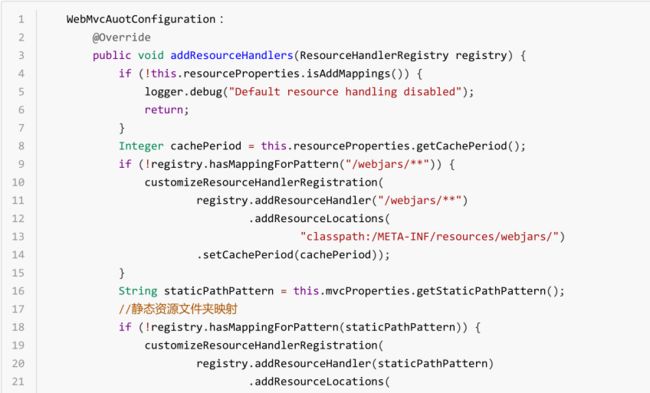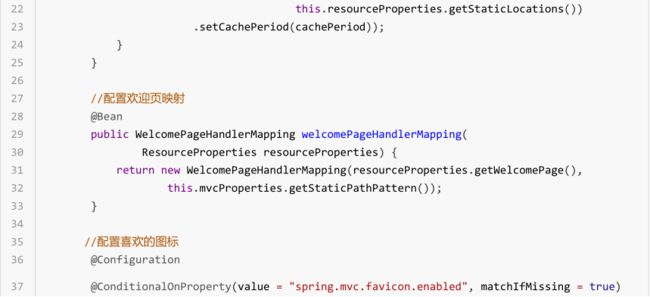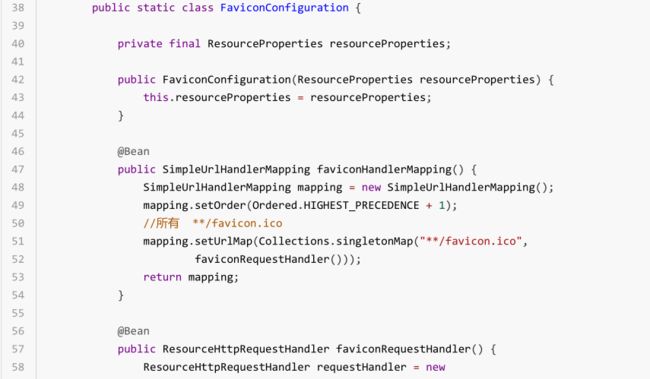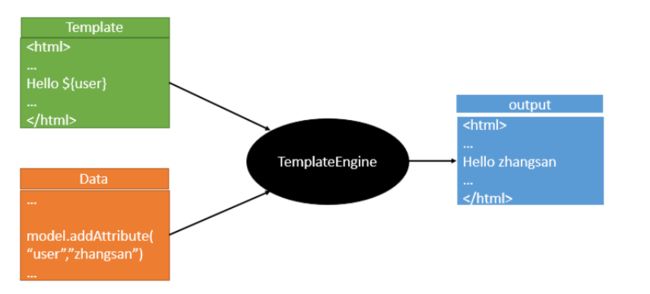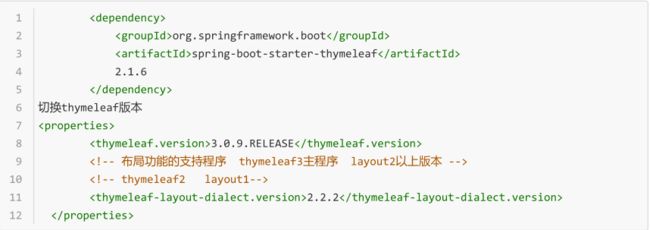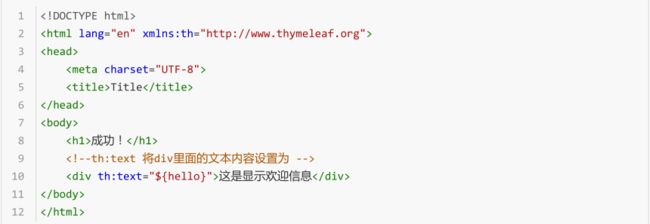- 华为OD机考2025B卷 - 表达式括号匹配(Java & Python& JS & C++ & C )
算法大师
最新华为OD机试真题华为OD机试真题(Java/JS/Py/C)华为odjavapythonjavascriptc++
最新华为OD机试真题目录:点击查看目录华为OD面试真题精选:点击立即查看2025华为od机试2025B卷-华为机考OD2025年B卷题目描述(1+(2+3)*(3+(8+0))+1-2)这是一个简单的数学表达式,今天不是计算它的值,而是比较它的括号匹配是否正确。前面这个式子可以简化为(()(()))这样的括号我们认为它是匹配正确的,而((())这样的我们就说他是错误的。注意括号里面的表达式可能是错
- SpringBoot单元测试全攻略:MockMVC+Testcontainers+覆盖率分析
fanxbl957
Webspringboot单元测试后端
博主介绍:Java、Python、js全栈开发“多面手”,精通多种编程语言和技术,痴迷于人工智能领域。秉持着对技术的热爱与执着,持续探索创新,愿在此分享交流和学习,与大家共进步。DeepSeek-行业融合之万象视界(附实战案例详解100+)全栈开发环境搭建运行攻略:多语言一站式指南(环境搭建+运行+调试+发布+保姆级详解)感兴趣的可以先收藏起来,希望帮助更多的人SpringBoot单元测试全攻略:
- 【算法-贪心算法-python】柠檬水找零
檀越@新空间
P1算法与数据结构s1Python算法贪心算法python
欢迎来到我的博客,很高兴能够在这里和您见面!希望您在这里可以感受到一份轻松愉快的氛围,不仅可以获得有趣的内容和知识,也可以畅所欲言、分享您的想法和见解。推荐:kuan的首页,持续学习,不断总结,共同进步,活到老学到老导航檀越剑指大厂系列:全面总结java核心技术点,如集合,jvm,并发编程redis,kafka,Spring,微服务,Netty等常用开发工具系列:罗列常用的开发工具,如IDEA,M
- 伪数组转换为真正的数组
会飞的鱼先生
javascript前端vue.js
在JavaScript中,**伪数组(类数组对象)**是指具有数字索引和length属性,但不具备数组原生方法的对象。常见的伪数组包括函数的arguments对象、DOM集合(如document.querySelectorAll的返回值)等。要将伪数组转换为真正的数组,可以使用以下几种方法:1.使用Array.from()Array.from()是一种简洁且高效的方法,可以将伪数组转换为真正的数组
- sqoop从mysql导数据到hdfs,出现java.lang.ClassNotFoundException: Class QueryResult not found
无级程序员
大数据sqoopmysqlhdfs
运行sqoop从postgresql/mysql导入数据到hdfs,结果出现如下错误:2025-07-1816:59:13,624INFOorm.CompilationManager:HADOOP_MAPRED_HOMEis/opt/datasophon/hadoop-3.3.3Note:/opt/sqoop/bin/QueryResult.javausesoroverridesadeprecat
- datasophon下dolphinscheduler执行脚本出错
无级程序员
大数据hive硬件架构hadoop
执行hive脚本出错:错误消息:FAILED:RuntimeExceptionErrorloadinghooks(hive.exec.post.hooks):java.lang.ClassNotFoundException:org.apache.atlas.hive.hook.HiveHookatjava.net.URLClassLoader.findClass(URLClassLoader.ja
- python pywebview + vue3 做桌面端
妃衣
python开发语言
pythonpywebview+vue3做桌面端Api.py#传给前端的api对象,定义了一个可以通过js调用退出当前应用的函数classApi:def__init__(self)->None:self._window=None#java运行的线程self.process=Nonedefset_process(self,_process):self.process=_processdefset_w
- python的pywebview库结合Flask和waitress开发桌面应用程序简介
czliutz
python笔记pythonflask开发语言
pywebview的用途与特点用途pywebview是一个轻量级Python库,用于创建桌面应用程序(GUI)。它通过嵌入Web浏览器组件(如Windows的Edge/IE、macOS的WebKit、Linux的GTKWebKit),允许开发者使用HTML/CSS/JavaScript构建界面,并用Python处理后端逻辑。这种方式结合了Web技术的灵活性和Python的强大功能,适合快速开发跨平
- [Java实战]Spring Boot 3实战:使用QQ邮箱发送精美HTML邮件(四十三)
曼岛_
Java实战javaspringboot邮件
[Java实战]SpringBoot3实战:使用QQ邮箱发送精美HTML邮件(四十三)本文将详细介绍如何在SpringBoot3中配置QQ邮箱发送专业的HTML格式邮件,解决实际开发中的邮件发送问题。一、结果验证1.1接口调用1.2邮箱查收二、QQ邮箱配置关键点2.1QQ邮箱特殊配置要求QQ邮箱与其他邮箱服务不同,需要特别注意:必须使用授权码而非登录密码需要启用SSL加密连接端口使用465(SSL
- 【031】2020.12.13 周日 Java类文件结构
算法成瘾者
Java类文件结构1.无关性基石虚拟机和字节码存储格式2.Class类文件的结构2.1)定义Class文件是一组以8字节为基础单位的二进制流2.2)Class文件格式:类似于C语言结构体的伪结构存储两种数据类型无符号数u1,u2,u4,u8表_info结尾某一类型的“集合”2.3)魔数与Class文件的版本魔数定义:每个Class文件的头4个字节被称为“魔数”(magicnumber)作用:确定是
- DDD深度解析
我是廖志伟,一名Java开发工程师、《Java项目实战——深入理解大型互联网企业通用技术》(基础篇)、(进阶篇)、(架构篇)清华大学出版社签约作家、Java领域优质创作者、CSDN博客专家、阿里云专家博主、51CTO专家博主、产品软文专业写手、技术文章评审老师、技术类问卷调查设计师、幕后大佬社区创始人、开源项目贡献者。拥有多年一线研发和团队管理经验,研究过主流框架的底层源码(Spring、Spri
- 领域驱动设计核心解析
Java开发廖志伟
Java场景面试宝典Domain-DrivenDesignSoftwareArchitectureStrategicandTacticalDesign
我是廖志伟,一名Java开发工程师、《Java项目实战——深入理解大型互联网企业通用技术》(基础篇)、(进阶篇)、(架构篇)清华大学出版社签约作家、Java领域优质创作者、CSDN博客专家、阿里云专家博主、51CTO专家博主、产品软文专业写手、技术文章评审老师、技术类问卷调查设计师、幕后大佬社区创始人、开源项目贡献者。拥有多年一线研发和团队管理经验,研究过主流框架的底层源码(Spring、Spri
- ShardingSphere技术解析
我是廖志伟,一名Java开发工程师、《Java项目实战——深入理解大型互联网企业通用技术》(基础篇)、(进阶篇)、(架构篇)清华大学出版社签约作家、Java领域优质创作者、CSDN博客专家、阿里云专家博主、51CTO专家博主、产品软文专业写手、技术文章评审老师、技术类问卷调查设计师、幕后大佬社区创始人、开源项目贡献者。拥有多年一线研发和团队管理经验,研究过主流框架的底层源码(Spring、Spri
- 微服务架构核心技术解析
Java开发廖志伟
Java场景面试宝典MicroservicesServiceDiscoveryAPIGateway
我是廖志伟,一名Java开发工程师、《Java项目实战——深入理解大型互联网企业通用技术》(基础篇)、(进阶篇)、(架构篇)清华大学出版社签约作家、Java领域优质创作者、CSDN博客专家、阿里云专家博主、51CTO专家博主、产品软文专业写手、技术文章评审老师、技术类问卷调查设计师、幕后大佬社区创始人、开源项目贡献者。拥有多年一线研发和团队管理经验,研究过主流框架的底层源码(Spring、Spri
- 前端——HTML
哪里不会点哪里.
前端html前端
目录HTML简介HTML基本框架JavaScript内嵌JavaScript外引JavaScriptCSS内部样式外部样式HTML简介HTML的全称为超文本标记语言,是一种标记语言。它包括一系列标签,通过这些标签可以将网络上的文档格式统一,使分散的Internet资源连接为一个逻辑整体。HTML文本是由HTML命令组成的描述性文本,HTML命令可以说明文字,图形、动画、声音、表格、链接等。超文本是
- 数据库管理-第349期 Oracle DB 23.9新特性一览(20250717)
胖头鱼的鱼缸(尹海文)
Oracle数据库oracle
数据库管理349期2025-07-17数据库管理-第349期OracleDB23.9新特性一览(20250717)1JavaScript过程和函数的编译时语法检查2不再需要JAVASCRIPT上的EXECUTE权限3GROUPBYALL4使用SQL创建并测试UUID5IVF索引在线重组6JSON到二元性迁移器:使用JSONschema进行模式推理7数据库认证的多因素认证8多语言引擎支持数据库驻留连
- Spring Cloud架构解析
Java开发廖志伟
Java场景面试宝典SpringCloudServiceGovernanceDistributedSystems
我是廖志伟,一名Java开发工程师、《Java项目实战——深入理解大型互联网企业通用技术》(基础篇)、(进阶篇)、(架构篇)清华大学出版社签约作家、Java领域优质创作者、CSDN博客专家、阿里云专家博主、51CTO专家博主、产品软文专业写手、技术文章评审老师、技术类问卷调查设计师、幕后大佬社区创始人、开源项目贡献者。拥有多年一线研发和团队管理经验,研究过主流框架的底层源码(Spring、Spri
- javaweb学习开发代码_HTML-CSS-JS
HTML学习标题(h1~h6)-段落p-换行brDocument当代文学之夜:2024年度长篇五佳作品及文学拉力赛颁奖当代文学之夜:2024年度长篇五佳作品及文学拉力赛颁奖当代文学之夜:2024年度长篇五佳作品及文学拉力赛颁奖当代文学之夜:2024年度长篇五佳作品及文学拉力赛颁奖当代文学之夜:2024年度长篇五佳作品及文学拉力赛颁奖当代文学之夜:2024年度长篇五佳作品及文学拉力赛颁奖《当代》作为
- Java 进阶之路:探索更强大的编程世界
七七&556
面试学习路线阿里巴巴java开发语言
在编程的浩瀚海洋中,Java如同一艘坚固的巨轮,引领着开发者们驶向创新与高效的彼岸。当我们掌握了Java的基础知识后,进阶之旅便悄然开启。一、面向对象的深入理解封装、继承与多态封装不仅仅是将数据隐藏起来,更是一种对代码的保护和组织方式。通过合理的封装,可以提高代码的可维护性和安全性。继承是代码复用的重要手段,但要避免过度继承带来的复杂性。理解继承的层次结构和正确使用继承,可以使代码更加清晰和易于扩
- Vue3 - 实现一个雨水滴落的动画效果
程序员的成长之路
Vue3html5javascriptvue
在Vue3中实现一个雨水滴落的动画效果,可以使用HTML5的元素和JavaScript来绘制和控制动画。以下是一个实现雨水滴落效果的示例:创建一个Vue3项目首先,确保你已经创建了一个Vue3项目。如果还没有,可以使用VueCLI来创建:vuecreaterain-animationcdrain-animation添加Canvas组件创建一个新的Vue组件来包含我们的元素和动画逻辑。创建一个名为R
- 飞算JavaAI:力臻开发之本真,破 AI 代码之繁琐,传统项目一键生成
微学AI
人工智能javajavaAI
飞算JavaAI:力臻开发之本真,破AI代码之繁琐,传统项目一键生成文章目录飞算JavaAI:力臻开发之本真,破AI代码之繁琐,传统项目一键生成一、前言二、飞算JavaAI是什么?2.1背景与实力2.2飞算JavaAI的“独门绝技”三、飞算JavaAI实战体验3.1IDEA插件安装配置3.2Main中写一个简单的梯度下降算法3.3main函数搭建一个卷积神经网络网络3.4飞算JavaAI:需求分析
- 马士兵系列——缓存行数据一致性2——缓存行的MESI
公众号【专注CLinuxCloud】
缓存python开发语言
hello,你好鸭,我是Ethan,西安电子科技大学大三在读,很高兴你能来阅读。✔️目前博客主要更新Java系列、项目案例、计算机必学四件套等。人生之义,在于追求,不在成败,勤通大道。加油呀!个人主页:EthanYankang推荐:史上最强八股文||一分钟看完我的几百篇博客温馨提示:划到文末发现专栏彩蛋点击这里直接传送本篇概览:详细讲解了缓存行的一致性协议之一的MEESI的方方面面。⭕【计算机领域
- java中字符串的创建_Java学习之字符串的创建
weixin_39849127
java中字符串的创建
Java字符串类(java.lang.String)是Java中使用最多的类,也是最为特殊的一个类,很多时候,我们对它既熟悉又陌生。一、从根本上认识java.lang.String类和String池首先,我建议先看看String类的源码实现,这是从本质上认识String类的根本出发点。从中可以看到:1、String类是final的,不可被继承。publicfinalclassString。2、St
- java 字符串 对象_Java中字符串对象
乘风破浪的小小
java字符串对象
标签:Java中字符串对象创建有两种形式,一种为字面量形式,如Stringstr="droid";,另一种就是使用new这种标准的构造对象的方法,如Stringstr=newString("droid");,这两种方式我们在代码编写时都经常使用,尤其是字面量的方式。然而这两种实现其实存在着一些性能和内存占用的差别。这一切都是源于JVM为了减少字符串对象的重复创建,其维护了一个特殊的内存,这段内存被
- 关于Java中的private final、static修饰的方法
讴歌oge
java开发语言
privatefinal修饰的方法示例代码:classCarextendsVehicle{publicstaticvoidmain(String[]args){newCar().run();//创建Car实例并调用run()方法}privatefinalvoidrun(){System.out.println("Car");//打印"Car"}}classVehicle{privatefinalv
- 10.jobManager初始化流程
JobManager初始化流程1.找到入口类StandaloneSessionClusterEntrypoint该类位于Flink源码的以下路径中:flink-runtime/src/main/java/org/apache/flink/runtime/entrypoint/StandaloneSessionClusterEntrypoint.java2.查看main方法/**Entrypoint
- Java中字符串的创建过程及intern()方法
讴歌oge
java开发语言StringinternStringBuilder
一、字符串的创建过程1.Strings="abc"首先在字符串常量池中查找是否有"abc"如果常量池中没有"abc",则创建一个"abc"对象放入常量池,进行下一步;如果有,直接进行下一步变量s指向常量池中的"abc"对象2.Strings=newString("abc");创建过程:首先在字符串常量池中查找是否有"abc"如果常量池中没有"abc",则创建一个"abc"对象放入常量池,进行下一步
- 鸿蒙与web混合开发双向通信
屿筱
鸿蒙HarmonyOS5
鸿蒙与web混合开发双向通信用runJavaScript和registerJavaScriptProxywebentry/src/main/resources/rawfile/1.html混合开发打开相册//直接写js代码functionchangeImg(){//1.获取img这个元素constimg=document.querySelector('img')//2.修改元素的属性img.src
- java毕业设计-基于Javaweb的家常小菜烹饪学习管理系统的设计与实现(源码+LW+部署文档+全bao+远程调试+代码讲解等)
程序猿刘
vuespringboot毕业设计java课程设计学习
博主介绍:✌️码农一枚,专注于大学生项目实战开发、讲解和毕业文撰写修改等。全栈领域优质创作者,博客之星、掘金/华为云/阿里云/InfoQ等平台优质作者、专注于Java、小程序技术领域和毕业项目实战✌️技术范围::小程序、SpringBoot、SSM、JSP、Vue、PHP、Java、python、爬虫、数据可视化、大数据、物联网、机器学习等设计与开发。主要内容:免费开题报告、任务书、全bao定制+
- java毕业设计源码案例-基于ssm+协同过滤的个性化小说推荐系统设计与实现(源码+LW+部署文档+全bao+远程调试+代码讲解等)
项目帮
springbootjava计算机毕设java课程设计开发语言
博主介绍:✌️码农一枚,专注于大学生项目实战开发、讲解和毕业文撰写修改等。全栈领域优质创作者,博客之星、掘金/华为云/阿里云/InfoQ等平台优质作者、专注于Java、小程序技术领域和毕业项目实战✌️技术范围::小程序、SpringBoot、SSM、JSP、Vue、PHP、Java、python、爬虫、数据可视化、大数据、物联网、机器学习等设计与开发。主要内容:免费功能设计,开题报告、任务书、全b
- java Illegal overloaded getter method with ambiguous type for propert的解决
zwllxs
javajdk
好久不来iteye,今天又来看看,哈哈,今天碰到在编码时,反射中会抛出
Illegal overloaded getter method with ambiguous type for propert这么个东东,从字面意思看,是反射在获取getter时迷惑了,然后回想起java在boolean值在生成getter时,分别有is和getter,也许我们的反射对象中就有is开头的方法迷惑了jdk,
- IT人应当知道的10个行业小内幕
beijingjava
工作互联网
10. 虽然IT业的薪酬比其他很多行业要好,但有公司因此视你为其“佣人”。
尽管IT人士的薪水没有互联网泡沫之前要好,但和其他行业人士比较,IT人的薪资还算好点。在接下的几十年中,科技在商业和社会发展中所占分量会一直增加,所以我们完全有理由相信,IT专业人才的需求量也不会减少。
然而,正因为IT人士的薪水普遍较高,所以有些公司认为给了你这么多钱,就把你看成是公司的“佣人”,拥有你的支配
- java 实现自定义链表
CrazyMizzz
java数据结构
1.链表结构
链表是链式的结构
2.链表的组成
链表是由头节点,中间节点和尾节点组成
节点是由两个部分组成:
1.数据域
2.引用域
3.链表的实现
&nbs
- web项目发布到服务器后图片过一会儿消失
麦田的设计者
struts2上传图片永久保存
作为一名学习了android和j2ee的程序员,我们必须要意识到,客服端和服务器端的交互是很有必要的,比如你用eclipse写了一个web工程,并且发布到了服务器(tomcat)上,这时你在webapps目录下看到了你发布的web工程,你可以打开电脑的浏览器输入http://localhost:8080/工程/路径访问里面的资源。但是,有时你会突然的发现之前用struts2上传的图片
- CodeIgniter框架Cart类 name 不能设置中文的解决方法
IT独行者
CodeIgniterCart框架
今天试用了一下CodeIgniter的Cart类时遇到了个小问题,发现当name的值为中文时,就写入不了session。在这里特别提醒一下。 在CI手册里也有说明,如下:
$data = array(
'id' => 'sku_123ABC',
'qty' => 1,
'
- linux回收站
_wy_
linux回收站
今天一不小心在ubuntu下把一个文件移动到了回收站,我并不想删,手误了。我急忙到Nautilus下的回收站中准备恢复它,但是里面居然什么都没有。 后来我发现这是由于我删文件的地方不在HOME所在的分区,而是在另一个独立的Linux分区下,这是我专门用于开发的分区。而我删除的东东在分区根目录下的.Trash-1000/file目录下,相关的删除信息(删除时间和文件所在
- jquery回到页面顶端
知了ing
htmljquerycss
html代码:
<h1 id="anchor">页面标题</h1>
<div id="container">页面内容</div>
<p><a href="#anchor" class="topLink">回到顶端</a><
- B树、B-树、B+树、B*树
矮蛋蛋
B树
原文地址:
http://www.cnblogs.com/oldhorse/archive/2009/11/16/1604009.html
B树
即二叉搜索树:
1.所有非叶子结点至多拥有两个儿子(Left和Right);
&nb
- 数据库连接池
alafqq
数据库连接池
http://www.cnblogs.com/xdp-gacl/p/4002804.html
@Anthor:孤傲苍狼
数据库连接池
用MySQLv5版本的数据库驱动没有问题,使用MySQLv6和Oracle的数据库驱动时候报如下错误:
java.lang.ClassCastException: $Proxy0 cannot be cast to java.sql.Connec
- java泛型
百合不是茶
java泛型
泛型
在Java SE 1.5之前,没有泛型的情况的下,通过对类型Object的引用来实现参数的“任意化”,任意化的缺点就是要实行强制转换,这种强制转换可能会带来不安全的隐患
泛型的特点:消除强制转换 确保类型安全 向后兼容
简单泛型的定义:
泛型:就是在类中将其模糊化,在创建对象的时候再具体定义
class fan
- javascript闭包[两个小测试例子]
bijian1013
JavaScriptJavaScript
一.程序一
<script>
var name = "The Window";
var Object_a = {
name : "My Object",
getNameFunc : function(){
var that = this;
return function(){
- 探索JUnit4扩展:假设机制(Assumption)
bijian1013
javaAssumptionJUnit单元测试
一.假设机制(Assumption)概述 理想情况下,写测试用例的开发人员可以明确的知道所有导致他们所写的测试用例不通过的地方,但是有的时候,这些导致测试用例不通过的地方并不是很容易的被发现,可能隐藏得很深,从而导致开发人员在写测试用例时很难预测到这些因素,而且往往这些因素并不是开发人员当初设计测试用例时真正目的,
- 【Gson四】范型POJO的反序列化
bit1129
POJO
在下面这个例子中,POJO(Data类)是一个范型类,在Tests中,指定范型类为PieceData,POJO初始化完成后,通过
String str = new Gson().toJson(data);
得到范型化的POJO序列化得到的JSON串,然后将这个JSON串反序列化为POJO
import com.google.gson.Gson;
import java.
- 【Spark八十五】Spark Streaming分析结果落地到MySQL
bit1129
Stream
几点总结:
1. DStream.foreachRDD是一个Output Operation,类似于RDD的action,会触发Job的提交。DStream.foreachRDD是数据落地很常用的方法
2. 获取MySQL Connection的操作应该放在foreachRDD的参数(是一个RDD[T]=>Unit的函数类型),这样,当foreachRDD方法在每个Worker上执行时,
- NGINX + LUA实现复杂的控制
ronin47
nginx lua
安装lua_nginx_module 模块
lua_nginx_module 可以一步步的安装,也可以直接用淘宝的OpenResty
Centos和debian的安装就简单了。。
这里说下freebsd的安装:
fetch http://www.lua.org/ftp/lua-5.1.4.tar.gz
tar zxvf lua-5.1.4.tar.gz
cd lua-5.1.4
ma
- java-递归判断数组是否升序
bylijinnan
java
public class IsAccendListRecursive {
/*递归判断数组是否升序
* if a Integer array is ascending,return true
* use recursion
*/
public static void main(String[] args){
IsAccendListRecursiv
- Netty源码学习-DefaultChannelPipeline2
bylijinnan
javanetty
Netty3的API
http://docs.jboss.org/netty/3.2/api/org/jboss/netty/channel/ChannelPipeline.html
里面提到ChannelPipeline的一个“pitfall”:
如果ChannelPipeline只有一个handler(假设为handlerA)且希望用另一handler(假设为handlerB)
来
- Java工具之JPS
chinrui
java
JPS使用
熟悉Linux的朋友们都知道,Linux下有一个常用的命令叫做ps(Process Status),是用来查看Linux环境下进程信息的。同样的,在Java Virtual Machine里面也提供了类似的工具供广大Java开发人员使用,它就是jps(Java Process Status),它可以用来
- window.print分页打印
ctrain
window
function init() {
var tt = document.getElementById("tt");
var childNodes = tt.childNodes[0].childNodes;
var level = 0;
for (var i = 0; i < childNodes.length; i++) {
- 安装hadoop时 执行jps命令Error occurred during initialization of VM
daizj
jdkhadoopjps
在安装hadoop时,执行JPS出现下面错误
[slave16]
[email protected]:/tmp/hsperfdata_hdfs# jps
Error occurred during initialization of VM
java.lang.Error: Properties init: Could not determine current working
- PHP开发大型项目的一点经验
dcj3sjt126com
PHP重构
一、变量 最好是把所有的变量存储在一个数组中,这样在程序的开发中可以带来很多的方便,特别是当程序很大的时候。变量的命名就当适合自己的习惯,不管是用拼音还是英语,至少应当有一定的意义,以便适合记忆。变量的命名尽量规范化,不要与PHP中的关键字相冲突。 二、函数 PHP自带了很多函数,这给我们程序的编写带来了很多的方便。当然,在大型程序中我们往往自己要定义许多个函数,几十
- android笔记之--向网络发送GET/POST请求参数
dcj3sjt126com
android
使用GET方法发送请求
private static boolean sendGETRequest (String path,
Map<String, String> params) throws Exception{
//发送地http://192.168.100.91:8080/videoServi
- linux复习笔记 之bash shell (3) 通配符
eksliang
linux 通配符linux通配符
转载请出自出处:
http://eksliang.iteye.com/blog/2104387
在bash的操作环境中有一个非常有用的功能,那就是通配符。
下面列出一些常用的通配符,如下表所示 符号 意义 * 万用字符,代表0个到无穷个任意字符 ? 万用字符,代表一定有一个任意字符 [] 代表一定有一个在中括号内的字符。例如:[abcd]代表一定有一个字符,可能是a、b、c
- Android关于短信加密
gqdy365
android
关于Android短信加密功能,我初步了解的如下(只在Android应用层试验):
1、因为Android有短信收发接口,可以调用接口完成短信收发;
发送过程:APP(基于短信应用修改)接受用户输入号码、内容——>APP对短信内容加密——>调用短信发送方法Sm
- asp.net在网站根目录下创建文件夹
hvt
.netC#hovertreeasp.netWeb Forms
假设要在asp.net网站的根目录下建立文件夹hovertree,C#代码如下:
string m_keleyiFolderName = Server.MapPath("/hovertree");
if (Directory.Exists(m_keleyiFolderName))
{
//文件夹已经存在
return;
}
else
{
try
{
D
- 一个合格的程序员应该读过哪些书
justjavac
程序员书籍
编者按:2008年8月4日,StackOverflow 网友 Bert F 发帖提问:哪本最具影响力的书,是每个程序员都应该读的?
“如果能时光倒流,回到过去,作为一个开发人员,你可以告诉自己在职业生涯初期应该读一本, 你会选择哪本书呢?我希望这个书单列表内容丰富,可以涵盖很多东西。”
很多程序员响应,他们在推荐时也写下自己的评语。 以前就有国内网友介绍这个程序员书单,不过都是推荐数
- 单实例实践
跑龙套_az
单例
1、内部类
public class Singleton {
private static class SingletonHolder {
public static Singleton singleton = new Singleton();
}
public Singleton getRes
- PO VO BEAN 理解
q137681467
VODTOpo
PO:
全称是 persistant object持久对象 最形象的理解就是一个PO就是数据库中的一条记录。 好处是可以把一条记录作为一个对象处理,可以方便的转为其它对象。
BO:
全称是 business object:业务对象 主要作用是把业务逻辑封装为一个对象。这个对
- 战胜惰性,暗自努力
金笛子
努力
偶然看到一句很贴近生活的话:“别人都在你看不到的地方暗自努力,在你看得到的地方,他们也和你一样显得吊儿郎当,和你一样会抱怨,而只有你自己相信这些都是真的,最后也只有你一人继续不思进取。”很多句子总在不经意中就会戳中一部分人的软肋,我想我们每个人的周围总是有那么些表现得“吊儿郎当”的存在,是否你就真的相信他们如此不思进取,而开始放松了对自己的要求随波逐流呢?
我有个朋友是搞技术的,平时嘻嘻哈哈,以
- NDK/JNI二维数组多维数组传递
wenzongliang
二维数组jniNDK
多维数组和对象数组一样处理,例如二维数组里的每个元素还是一个数组 用jArray表示,直到数组变为一维的,且里面元素为基本类型,去获得一维数组指针。给大家提供个例子。已经测试通过。
Java_cn_wzl_FiveChessView_checkWin( JNIEnv* env,jobject thiz,jobjectArray qizidata)
{
jint i,j;
int s


